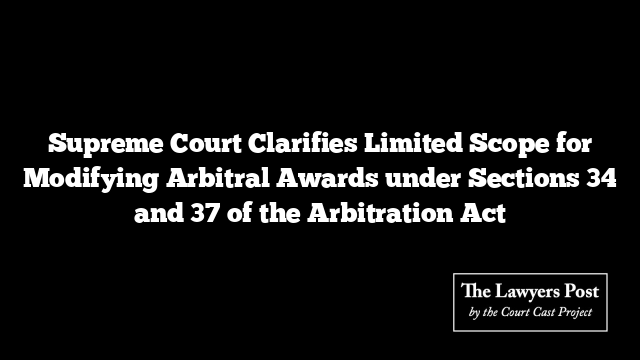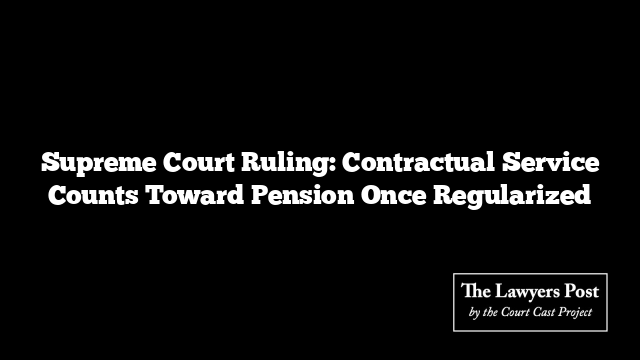In a landmark ruling, the Supreme Court’s Constitution Bench has delineated the scope of judicial intervention in arbitral awards, specifically under Sections 34 and 37 of the Arbitration and Conciliation Act, 1996. The Court ruled, by a 4-1 majority, that while appellate courts possess limited authority to modify arbitral awards, this power is constrained to specific circumstances.
The majority opinion, delivered by Chief Justice of India Sanjiv Khanna, outlined that modification of an arbitral award is permissible under the following conditions:
- Severability: If parts of the award can be separated, the invalid portion may be removed without affecting the valid part.
- Correction of Errors: Courts can rectify clerical, computational, or typographical errors that are apparent from the record.
- Post-Award Interest: In certain cases, post-award interest may be modified.
- Article 142 Powers: The Supreme Court can exercise its special powers under Article 142 of the Constitution to modify an award, but this must be done cautiously and within constitutional limits.
The bench, consisting of Chief Justice Khanna, Justices BR Gavai, Sanjay Kumar, AG Masih, and KV Viswanathan, reserved the judgment on the case after a three-day hearing in February 2025. The Court primarily examined whether modification of an award falls within the powers granted under Sections 34 and 37, with particular focus on the limits and extent of such modifications.
Dissenting Opinion: Justice KV Viswanathan dissented, asserting that the power to modify an arbitral award does not lie within the purview of Section 34 unless explicitly stated in the law. He emphasized that modification would conflict with the foundational principles of arbitration, which emphasize finality and limited court interference. Justice Viswanathan also disagreed with the majority view on post-award interest modifications, arguing that such changes should be referred back to the tribunal rather than decided by the courts. Additionally, he rejected the notion that Article 142 could be used to modify arbitral awards, suggesting that such an interpretation would create legal uncertainty, especially regarding foreign awards.
The Court’s decision addressed three key issues:
- The definition of “modification” in the context of arbitral awards.
- The extent to which courts can allow partial modifications without altering the core of the award.
- The parameters for severability of arbitral awards.
Background: The matter arose from a referral in February 2024, where a bench led by Justices Dipankar Dutta, K.V. Viswanathan, and Sandeep Mehta asked whether courts could modify arbitral awards under Sections 34 or 37. Previous cases had yielded conflicting interpretations, with some courts accepting modifications and others ruling against it.
Arguments: The Solicitor General of India, Tushar Mehta, argued that under Section 34, courts only have the power to set aside an award, not to modify it. He also emphasized that severability does not equate to modification, as setting aside a part of the award is distinct from altering its substance. Senior Advocate Arvind Datar, representing the petitioners, contended that the current law did not adequately address the realities of international arbitration and that courts should have the power to modify awards in cases of manifest errors.
This ruling provides clarity on the boundaries of judicial review in arbitration, balancing the need for judicial intervention with the respect for arbitral autonomy.




